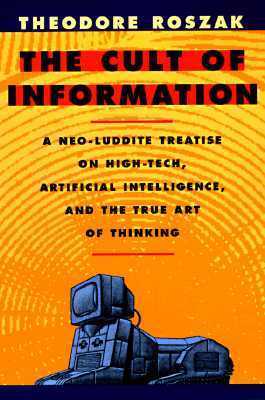
Raúl Zibechi
In a recent interview (https://bit.ly/3BuJeRP), the South Korean-born German philosopher Byun-Chuk Han said: “We are very well informed, but somehow we cannot orient ourselves.” His arguments about the social consequences of the excess of information we suffer from had already been analyzed in his book Infrocracy, published a year ago.
Byun attributes a good part of the problems we suffer as a society to digitalization. He says that the narcissistic ego turned inward “is the cause of social disintegration”, since “everything that unites and connects is disappearing”, neutralizing the possibility of considering ourselves as a single society. The conclusion is that there are no longer “common narratives that unite people.”
He distinguishes between truth and information, asserting that the latter is centrifugal and destroys social cohesion, while the true narrative holds it together. “Truth illuminates the world while information lives on the appeal of surprise,” he says, because it generates a succession of “fleeting moments” that have the power to obscure reality and distort rather than inform.
The philosopher goes on to make his case, pointing out that information no longer enables the creation of a public sphere. “I remember, not so long ago, that in critical situations people would gather around newsstands, comment and share the news in the public space. But now we no longer have common narratives to guide and give meaning to our existence. There are no rituals either, and we are left with little more than consumption and the satisfaction of needs,” Byun says.
He believes that in the future “people will receive a universal basic income and will have unlimited access to video games”, the form that state policy is now taking around the world, in a new version of “bread and circuses.”
It may be said that this is not new, but the drift of half a century of increasing positioning of information technologies at the center of our lives. The Austrian physicist Fritjof Capra complements the German philosopher, as he explains in this sentence: “Information is presented as the basis of thought while, in reality, the human mind thinks with ideas, not with information” (La trama de la vida, Anagrama, 1998, p. 88).
It recovers many concepts expressed by the American novelist Theodore Roszak in The Cult of Information. A Treatise on High Tech, Artificial Intelligence and the True Art of Thinking, published in 1986, almost four decades ago. An important conclusion: “Ideas are integrative patterns that derive not from information, but from experience.”

That is why the system’s whole endeavor with our young people consists of limiting their life experiences and subjecting them to a constant bombardment of information that brings them nothing, but creates a gigantic cloud of confusion. Consumerism, that “anthropological mutation” that Passolini referred to half a century ago, is their main window to the world, except of course for their computer screens.
In this world of over-information there are no ideas, just as there are none in the tremendous flow of data on the Internet. Because ideas have always been dangerous, they are the ones that can give meaning to reality and to lives, they are compasses to strip oppressions. Without ideas and without vital experience, humanity is shipwrecked towards the abyss, just at the most critical moment in living memory, at least since the Black Death (1347-53), the remote origin of capitalism*.
To harass us with information and block ideas is a gain for the system, so I propose to think of the use of the Internet by those at the top as an immense counterinsurgency policy. On the other hand, progressivism uses and abuses communication to offer an account of its supposed virtues, never to dialogue on an equal footing with the common people. They reproduce the systemic subject-object relationship, which they claim to fight, placing their own voters in the position of passive receivers of their speeches.
In order to protect the integrity of their communities, the Guarani Mbya in many villages regulate Internet connection times, so that their sons and daughters are not left defenseless in the face of the avalanche of data that they cannot order or prioritize. In this way, they refuse to expose themselves to the disorganizing power of social networks. There are many native peoples who do so, simply to defend themselves.
The long silence of the Zapatista Army of National Liberation, more than a year without issuing communiqués, can be understood as a refusal to enter the media circus that few people pay attention to, and even less understand. It is the silence of rage and dignity. The Fifth Declaration of the Lacandon Jungle (1998) explains silence as a weapon of struggle, and that “with reason, truth and history, one can fight and win…by keeping silent.”
*Ole J. Benedictow, The Black Death, 1346-1353. The Complete History, Akal, 2011.
Original published in La Jornada May 19th, 2023. https://www.jornada.com.mx/notas/2023/05/19/politica/la-mente-piensa-con-ideas-no-con-informacion
English translation by Schools for Chiapas.
